Reports

2020/11/10
The Fitify mobile application was founded by Martin Mazanec and Matouš Skála while studying at the Faculty of Information Technology, CTU. The application offers over 800 exercises, dozens of workouts and a virtual coach. It has already found its users in 180 countries around the world.

The pandemic did not stope the international student architectural competition INSPIRELI AWARDS as record of 1,336 students from 106 countries entered this year's fifth year. A total of 1305 projects competed in all categories. Due to the epidemiological measures, the award ceremony took place on Thursday, 5 November, through online stream from the Faculty of Civil Engineering, which, together with the Czech Technical University in Prague rectorate, is a co-organizer of the competition. Those interested could watch the ceremony on social networks.
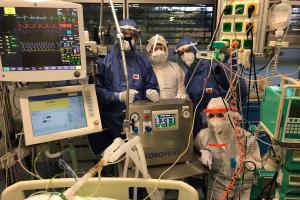
CoroVent lung ventilators developed at the Faculty of Biomedical Engineering of the Czech Technical University in Prague and paid for from the collection of citizens and companies are gradually being delivered to Czech hospitals. The first installation took place at the Masaryk Regional Health Hospital in Ústí nad Labem on 31 October, 2020 where the patient was hooked up to the lung ventilator for the first time.
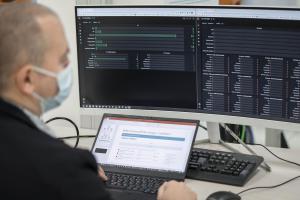
2020/11/04
On-line monitoring of hospital bed capacities: a topic that resonates in connection with the growing number of hospitalized with COVID-19 disease. The integration system, developed by the Czech Institute of Informatics, Robotics and Cybernetics (CIIRC) of the Czech Technical University and the start-up TRIX Connections to help healthcare professionals and crisis management, is able to automatically and securely connect and process online live data directly from hospitals. The system was tested at the University Hospital Ostrava and is ready for use in hospitals.
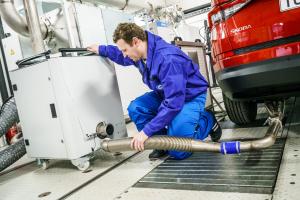
Air quality is at the top of the World Health Organisation's list of causes of premature death. According to the European Commission, he is responsible, by a rough estimate, for the death of one per mille of the population per year. Over 10,000 in the Czech Republic, less than half a million in Europe. According to a study at Harvard University in the USA, the risk increases by 8% with each extra microgram of particles in a cubic meter of air. In addition, high concentrations of harmful particles in the air may increase health damage during a coronavirus pandemic.

Scientists from the University Center for Energy Efficient Buildings of the Czech Technical University in Prague, in cooperation with experts from Spectrasol, have developed a new type of luminaire whose colour spectrum is very close to natural sunlight. Its usefulness is confirmed by the conclusions of the world-unique studies carried out at the Na Pražačce grammar school in Prague and, in cooperation with the National Institute of Mental Health, also at the TGM Home for the Elderly in Beroun.
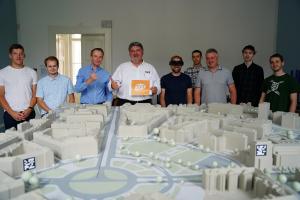
Despite the unfavorable epidemiological situation, the new master's dual-degree program Smart Cities prepared in cooperation between CTU and The University of Texas at El Paso in the United States (UTEP) opened its courses for the winter semester of 2020/21. The American university is part of The University of Texas System, which brings together fourteen Texas public higher education institutes. Over 235,000 students study within this system, of which 25,000 at UTEP. UTEP belongs to the R-1 category of research institutions in the USA, ie. among 4.5% of the top American universities (out of a total of about 2,800 institutions).

GoodAI, an artificial intelligence (AI) research and development company, donated $ 24,000 from its total $ 300,000 grant fund to a group of researchers from the Czech Institute of Informatics, Robotics and Cybernetics, CTU. The grant will support the implementation of a project which, as both parties firmly believe, will accelerate research into artificial intelligence comparative to the human level. The project will be led by scientist Tomáš Mikolov, who led the development of popular algorithms for natural speech preprocessing - Word2vec and FastText, and has previously worked as a researcher in Facebook AI and Google Brain.
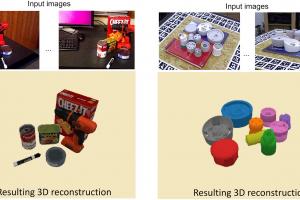
Estimating the 6D position of objects from an image is one of the key tasks for autonomous systems equipped with visual sensors. With a precisely estimated position, the robot can then grab the object and further manipulate it. As an example, you can imagine a home robotic helper that can automatically fill a dishwasher or a production robot that manipulates items on the production line based on visual inputs.

Bianka Hudáková and Kryštof Bouřil, students of the Bébarová-Nezpěváková design fundamentals studio from the Institute of Design, Faculty of Architecture, were among the fifty most successful participants in the Model Young Package 2020 international competition.